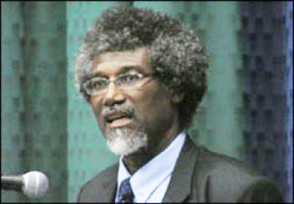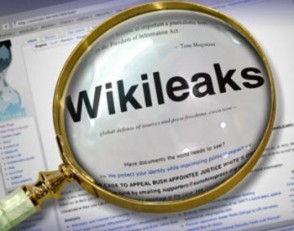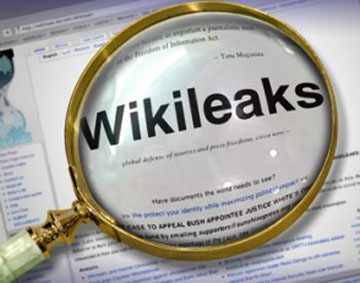A WikiLeaks cable released yesterday revealed how the Governor of the Eastern Caribbean Central Bank agonized about the impact of the indictment of Allen Stanford on the Bank of Antigua and also contained unflattering comments about the Chinese-built stadium named for Sir Vivian Richards.
The cable was authored on February 18th, 2009 and was dispatched from Bridgetown to Washington. It pertained mostly to the domestic situation in Antigua which was then on the verge of an election.

Noting that shortly after the February 17 announcement of the March elections Stanford was indicted by the US Securities and Exchange Commission, the cable said that Antiguan depositors lined up on February 18 to withdraw funds from the Stanford Financial Group’s subsidiary, the Bank of Antigua in what had been characterized as a run on the institution. The run was attributed to rumours and fears that the US authorities would seek to confiscate all Stanford-related assets. The flamboyant Texan billionaire was a major investor in the Antiguan economy.
The cable said that Antiguan Police Commis-sioner Tom Bennett confirmed that there was some concern about unrest but by the middle of the day there were no incidents at the bank’s branches. It pointed out that Antiguan PM Baldwin Spencer also called for calm during a live national broadcast.
“Eastern Caribbean Central Bank Governor Sir Dwight Venner, meanwhile, phoned the Charge (in Barbados) from his office in St. Kitts seeking further clarification regarding the SEC’s proposed actions. He said that the ECCB was flying in money to back withdrawals at the Bank of Antigua for now, but that they could not do so for long. Prior to the SEC case, he said the bank had adequate liquidity and reasonable debt-equity ratios. He was looking for information that would allow the ECCB and the government of Antigua to reassure depositors. He has subsequently been in touch with the SEC on the matter. At some point soon, the ECCB may be required to step in and take control of the bank to protect the interests of depositors. Embassy appreciates SEC coordination on this issue”, the cable said.
Antigua media reports had quoted Venner on February 19, 2009 as saying that the Bank of Antigua (BOA) was on sound footing and money deposited there was safe. He however warned according to Caribbean 360 that the “situation could take a turn for the worse if depositors in Antigua and Barbuda continue to withdraw their funds in panic.

The cable said in all the upheaval in Antigua, the one bright spot was the test match held between the West Indies and England that week. It said however that even this silver lining was sullied by the “national embarrassment” that the match could not be played at the stadium built by the Chinese and named for the `Master Blaster’ Sir Vivian Richards.
“The high-profile event has tempered somewhat people’s concerns over the elections or the Stanford indictment. The region’s love of cricket means crowds are packed in the Antigua Recreation Grounds Stadium. Yet even this silver lining has a touch of grey, as in what has been termed `a national embarrassment’ in regional press the match could not be held at the recently constructed 20,000 person stadium named in honor of local cricket legend Sir Vivian Richards because of poor field conditions.
Most blame the poor conditions on the slapdash construction done by the Chinese government, which built the stadium as a gift to the Antiguan government, local commentator Winston Derrick said. It has also not been lost on regional commentators that one of the biggest financial backers of the West Indies cricket team, and the person who brought the more marketable 20/20 cricket format to the Caribbean, is none other than Sir Allen Stanford — and many are beginning to wonder how his indictment might hurt a team that is just beginning to rebound from a drubbing in the 2007 cricket World Cup”, the cable said.
The cable then proceeded to offer a pessimistic outlook on Antigua.
“The United Progressive Party (UPP), once the clear favorite to return to power, now has a real fight on its hands, which few predicted just two months ago. Rapidly falling numbers for tourism throughout the region coupled with increasing stories of murdered tourists, the indictment of the second largest employer on the island for fraud, and a failed cricket match finds Antigua in perhaps the perfect storm. Many worry that these issues could not only spell disaster for the UPP, but for the country’s economy as a whole, leading to a severe economic depression and intolerable unemployment creating more violence and a cycle of less tourism, more unemployment and more crime. It is unclear if either party will try hard to use the Stanford indictment as an election issue — Stanford amassed his fortune under an ALP government, and was knighted by a UPP government, so all hands are likely equally dirty. Of more concern for Antigua is when the run of “bad luck” will stop, and whether either party is positioned to turn things around on crime and the economy.”
More than 250,000 cables from the US State Department and US missions around the world have been released by WikiLeaks owner Julian Assange. The cables contain 380 which are said to have emanated from the Georgetown Embassy. None of these have been released as yet.






